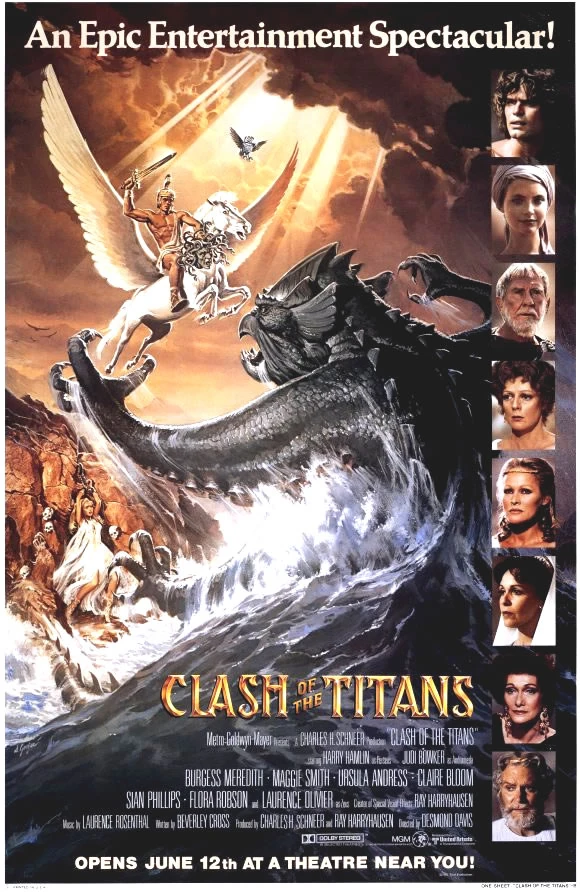Hero Character Creation; Myth Criticism; Clash of the Titans - Day 1
Period 1:
From Christopher Marlowe's The Tragedy of Dr. Faustus:
Was this the face that launch'd a thousand ships,
And burnt the topless towers of Ilium?
Sweet Helen, make me immortal with a kiss...
Here will I dwell, for heaven is in these lips,
And all is dross that is not Helena.
I will be Paris, and for love of thee,
Instead of Troy, shall Wittenberg be sack'd;
And I will combat with weak Menelaus,
And wear thy colours on my plumed crest;
Yea, I will wound Achilles in the heel,
And then return to Helen for a kiss.
O, thou art fairer than the evening air
Clad in the beauty of a thousand stars;
Brighter art thou than flaming Jupiter
When he appear'd to hapless Semele;
More lovely than the monarch of the sky
In wanton Arethusa's azur'd arms;
And none but thou shalt be my paramour!
Troy poem samples. Let's read a few poems based on the Trojan War. You can write a poem too! Use The Aeneid (any part of it) as fodder for your own imagination--or use the myth as an allusion to a love poem of your own...
Aeneas is a reluctant hero. He is exiled from his home, his family is dead, he is restless and wandering; He becomes a hero because he is forced to survive.
Myth Criticism asks:
Use the rest of period 1 to read or write.
Period 2:
Clash of the Titans (1981)--the movie that ended Ray Harryhausen's career. Directed by Desmond Davis.
Use mythic criticism to review (in writing or as a podcast or vlog post) Clash of the Titans. Take notes during the film to help you prepare your review.
HOMEWORK:
1. Write an epic adventure or quest or heroic story. You may also like to make a comic book (6 Free Sites for Creating Your Comic Book) or use one of the storytelling programs to write a children's picture book, film, or story:
2. Begin The Mahabharata (chapters 1-6), India's greatest epic. Search for archetypes and note what you find. Use mythic criticism as a tool for your interpretation.
3. Finish reading The Aeneid if you did not read it already.
4. Write a poem that alludes to or involves a part of The Aeneid, The Iliad, or The Odyssey.
From Christopher Marlowe's The Tragedy of Dr. Faustus:
And burnt the topless towers of Ilium?
Sweet Helen, make me immortal with a kiss...
Here will I dwell, for heaven is in these lips,
And all is dross that is not Helena.
I will be Paris, and for love of thee,
Instead of Troy, shall Wittenberg be sack'd;
And I will combat with weak Menelaus,
And wear thy colours on my plumed crest;
Yea, I will wound Achilles in the heel,
And then return to Helen for a kiss.
O, thou art fairer than the evening air
Clad in the beauty of a thousand stars;
Brighter art thou than flaming Jupiter
When he appear'd to hapless Semele;
More lovely than the monarch of the sky
In wanton Arethusa's azur'd arms;
And none but thou shalt be my paramour!
Troy poem samples. Let's read a few poems based on the Trojan War. You can write a poem too! Use The Aeneid (any part of it) as fodder for your own imagination--or use the myth as an allusion to a love poem of your own...
Aeneas is a reluctant hero. He is exiled from his home, his family is dead, he is restless and wandering; He becomes a hero because he is forced to survive.
- Choose a genre. Check your archetypes and pick one (or combine 2 or more...)
- Create a character whose situation is dire--someone who is forced into heroism, rather than being naturally heroic or superhuman.
- Talk with a neighbor: who do you know like this? [From films, tv, literature, or your own experience...]
- Give your character a name and a talent or special ability (something that sets him/her aside from all other people).
- Design your character. You might like to try: a character/plot generator or other character generators or this program: Hero Machine (2.5)--there is a 3.0 version as well...
- Once you have a character, send him/her on a quest or adventure to prove his/her mettle.
Myth Criticism asks:
1. How does the story resemble other stories in plot, character, setting or use of symbols?Why should you read Virgil's Aeneid? (video)
2. Are archetypes presented, such as quests, initiations, scapegoats, descending, or withdrawals and returns? [Use your handout/notes to help!]
3. Does the protagonist undergo any kind of transformation (such as movement from innocence to experience) that seems archetypal?
4. Are there any specific allusions to myths that shed light on the text?
Use the rest of period 1 to read or write.
Period 2:
Clash of the Titans (1981)--the movie that ended Ray Harryhausen's career. Directed by Desmond Davis.
Use mythic criticism to review (in writing or as a podcast or vlog post) Clash of the Titans. Take notes during the film to help you prepare your review.
HOMEWORK:
1. Write an epic adventure or quest or heroic story. You may also like to make a comic book (6 Free Sites for Creating Your Comic Book) or use one of the storytelling programs to write a children's picture book, film, or story:
- Powtoon
- Storyboard Creator
- Toondoo (comic book creator)
- My Story Book
- Storybird
- Storyjumper
- Printable comic book templates
2. Begin The Mahabharata (chapters 1-6), India's greatest epic. Search for archetypes and note what you find. Use mythic criticism as a tool for your interpretation.
3. Finish reading The Aeneid if you did not read it already.
4. Write a poem that alludes to or involves a part of The Aeneid, The Iliad, or The Odyssey.

Comments